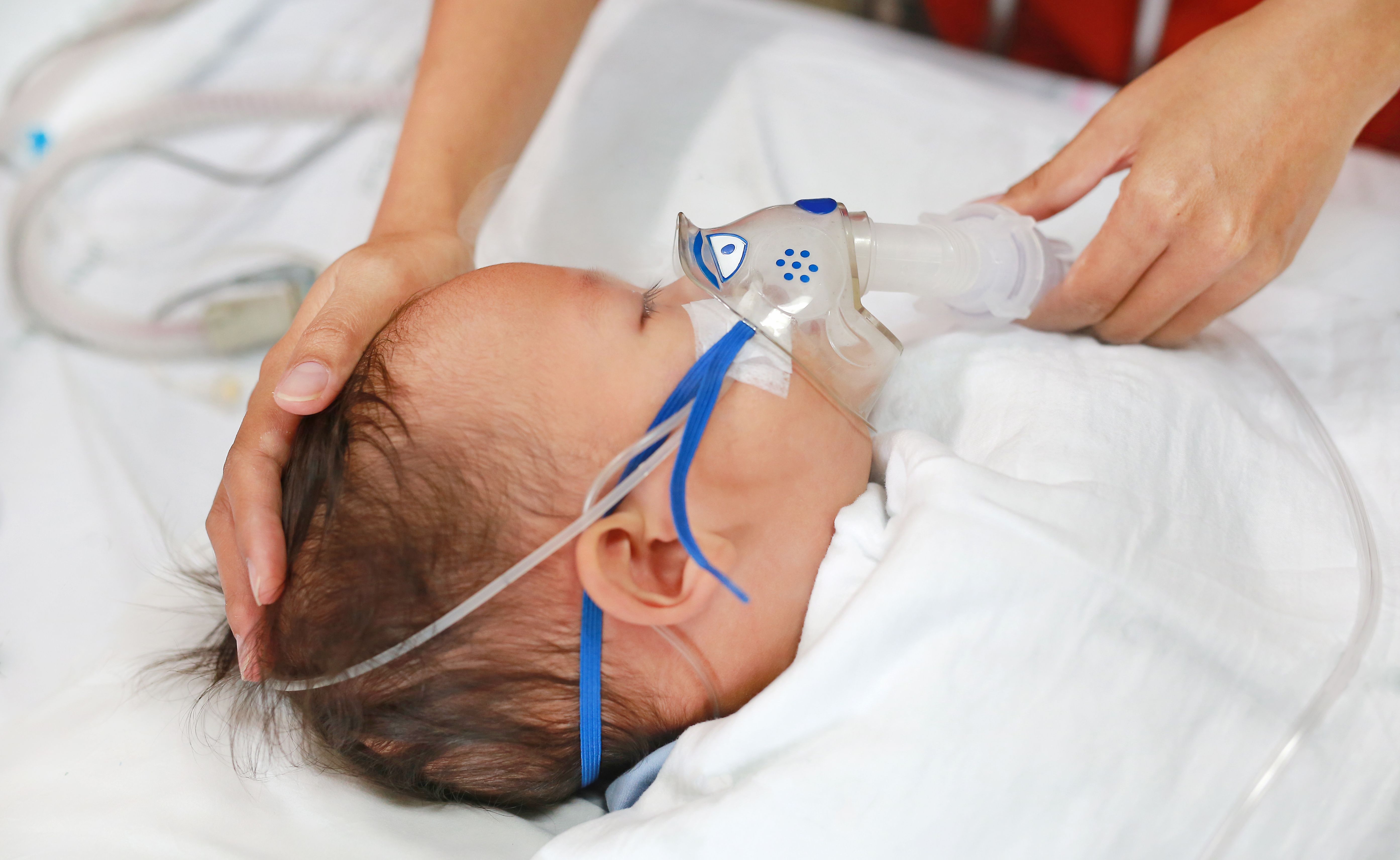News
Article
RSV Preventative Monoclonal Antibody Could Reduce Disease Incidence in Preterm, Full-term Infants
Author(s):
Key Takeaways
- Clesrovimab significantly reduced RSV-associated hospitalizations and infections in infants, achieving a 91.7% reduction in severe MALRI.
- The phase 2b/3 trial involved 3,632 infants, demonstrating clesrovimab's efficacy in reducing RSV-related hospitalizations by over 84%.
Clesrovimab reduced RSV-associated hospitalizations and RSV-associated lower respiratory infection hospitalizations by more than 84% and 90% in preterm and full-term infants, respectively.
Presented during IDWeek 2024, in Los Angeles, California, researchers announced positive findings from the phase 2b/3 MK-1654-004 clinical trial that assessed clesrovimab (MK-1654; Merck), an investigational monoclonal prophylactic monoclonal antibody designed to protect infants from respiratory syncytial virus (RSV) infection in their first RSV season.1
Image credit: zilvergolf | stock.adobe.com

“RSV continues to be a widespread seasonal infection that can affect both healthy and at-risk infants and is the leading cause of hospitalization for infants,” said Octavio Ramilo, MD, chair of the Department of Infectious Diseases at St. Jude’s Children’s Research Hospital and investigator for the MK-1654-004 and MK-1654-007 trials, in a news release.1
There is a significant need for further treatment options among healthy and high-risk infants as RSV remains a global burden in this population. Study authors noted that RSV is the leading cause of hospitalization worldwide for healthy infants that are under a year old and causes an estimated 101,000 annual deaths in children under 5 years of age.1
According to the CDC, RSV may not be as severe when it first occurs in infants and young children, as initial symptoms include runny nose, decrease in eating or drinking, and cough that could progress to wheezing or difficulty breathing. However, the CDC noted that in infants less than 6 months old, symptoms can appear as irritability, decreased activity, decreased appetite, and apnea.2 Infants with severe RSV could experience respiratory conditions such as bronchiolitis and pneumonia.1
The first cases of RSV can begin in the fall as it hits its peak in the winter months in the US. However, the CDC notes that the timing and severity of cases depends on the community or region, varying each year.1
As an investigational, extended half-life monoclonal antibody (mAb), clesrovimab was established as a form of passive immunization to prevent RSV infection, according to study authors. The drug is administered as the same single dose regardless of birth weight and is currently being assessed among healthy, full-term, at-risk infants to treat mild, moderate, and severe RSV during their first season.1
The double-blind, randomized, placebo-controlled phase 2b/3 MK-1654-004 (NCT04767373) trial included 3632 infants from birth to 1 year of age that were randomly assigned to receive a 105 mg intramuscular injection of clesrovimab or a placebo on day 1. The primary end point of the study was RSV-associated medically attended lower respiratory infection (MALRI) from day 1 to day 180 compared with the placebo, and safety.1
“The MK-1654-004 study evaluated a broad spectrum of RSV disease ranging from mild outpatient illness to severe disease requiring hospitalization. These promising results demonstrating decreased incidence of RSV disease, including hospitalizations, [and] highlight the potential for clesrovimab to play an important role in helping to alleviate the continued burden of RSV on infants and their families,” Ramilo said in a news release.1
The primary end point of MALRI, defined as ≥ 1 indicator of lower respiratory infection (LRI) or severity compared to the placebo through day 180, was 60.4%. Further results displayed that the trial met its secondary end point of reduced RSV-associated hospitalizations and RSV-associated LRI hospitalizations through day 180 compared with placebo by 84.2%. Additionally, clesrovimab reduced the incidence of severe MALRI by 91.7%1
“These clinically meaningful findings also reinforce the potential for clesrovimab to be the first and only immunization designed to protect both healthy and at-risk infants using the same dose, regardless of weight,” said Paula Annunziato, MD, senior vice president, infectious diseases and vaccines, Global Clinical Development, Merck Research Laboratories, in a news release. “We look forward to continuing to discuss these data with health authorities around the world with the goal of making clesrovimab available for infants as early as the 2025-26 RSV season.”1
The study authors noted that the incidence of adverse events and serious adverse events were similar between clesrovimab and placebo groups. A phase 3 trial (MK-1654-007) of clesrovimab is currently ongoing.1
The findings suggest that clesrovimab reduced RSV-associated hospitalizations and RSV-associated lower respiratory infection hospitalizations more than 84% and 90%, respectively in 5 months.1
REFERENCES
1. Merck’s Clesrovimab (MK-1654), an Investigational Respiratory Syncytial Virus (RSV) Preventative Monoclonal Antibody, Significantly Reduced Incidence of RSV Disease and Hospitalization in Healthy Preterm and Full-term Infants. Merck. News release. October 17, 2024. Accessed November 6, 2024. https://www.merck.com/news/mercks-clesrovimab-mk-1654-an-investigational-respiratory-syncytial-virus-rsv-preventative-monoclonal-antibody-significantly-reduced-incidence-of-rsv-disease-and-hospitalization-in-heal/.
2. RSV in Infants and Young Children. CDC. News release. August 30, 2024. Accessed November 6, 2024. https://www.cdc.gov/rsv/infants-young-children/index.html#:~:text=RSV%20in%20very%20young%20Infants,for%20more%20than%2010%20seconds).
Newsletter
Stay informed on drug updates, treatment guidelines, and pharmacy practice trends—subscribe to Pharmacy Times for weekly clinical insights.






